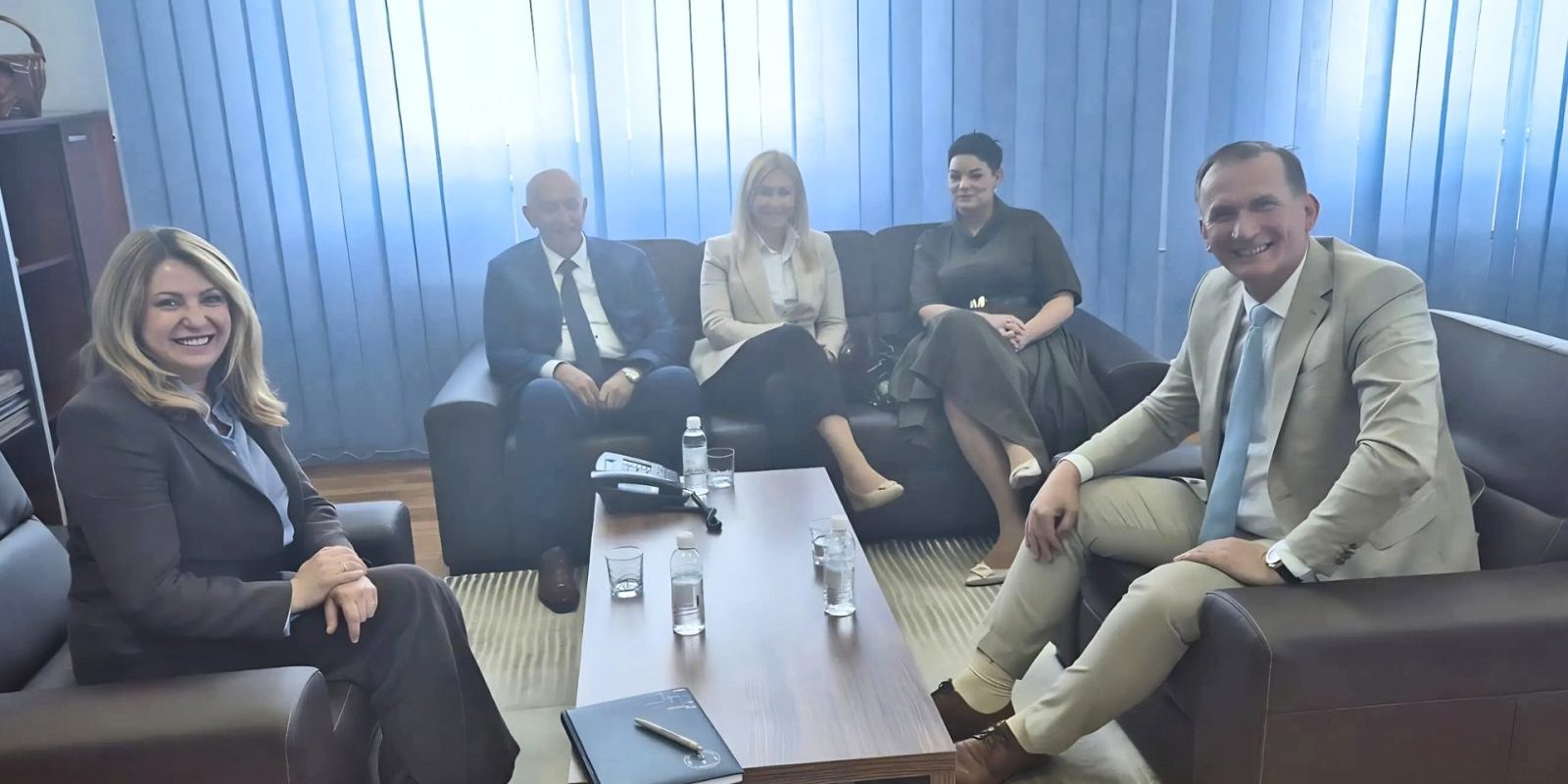A working meeting was held at the University Clinical Center Tuzla (UKC Tuzla) between Prof. Dr. Vlatka Martinović, Director of the Health Insurance and Reinsurance Institute of the Federation of Bosnia and Herzegovina (ZZOiRO FBiH), and Prim. Dr. Suad Bijedić, Deputy Director of the Institute, with Prof. Dr. Šekib Umihanić, Director of UKC Tuzla.
The meeting focused on reviewing the ongoing collaboration between UKC Tuzla and ZZOiRO FBiH, particularly in relation to the financing of tertiary healthcare services through the Solidarity Fund.
Special attention was given to identifying and addressing challenges in the treatment of returnees to the smaller BiH entity (Republika Srpska), as well as ongoing issues in the care of oncology patients.
The participants emphasized the need for a coordinated approach to ensure equitable access to healthcare for all patients, regardless of administrative or territorial boundaries, and reaffirmed their commitment to improving healthcare outcomes through sustainable funding and institutional cooperation.
During the meeting, participants emphasized the urgent need for stronger institutional support and more stable financing of tertiary healthcare services, which encompass highly complex and resource-intensive procedures such as cardiac surgery, coronary angiography, radiotherapy, cochlear implant placement, and numerous other advanced diagnostic and therapeutic interventions.
The representatives called for greater engagement from relevant authorities to address these pressing challenges and ensure that patients across the Federation of Bosnia and Herzegovina have equitable access to critical medical services.
It was also noted that the implementation of a health system informatization program is expected to commence soon in three clinical centers across the Federation, including the University Clinical Center Tuzla. This program aims to enhance the efficiency of planning, distribution, and consumption of medications, while also enabling improved monitoring and oversight of healthcare system operations.
By advancing digitalization, the initiative is expected to significantly contribute to quality control and improved service delivery.
In conclusion, the meeting participants underscored the importance of strengthening inter-institutional cooperation, modernizing and accelerating digital transformation processes, and continued investment in healthcare infrastructure
These measures are viewed as essential to ensuring the long-term sustainability of the healthcare system and the enhancement of treatment quality for all patients.







